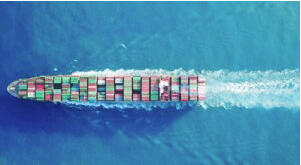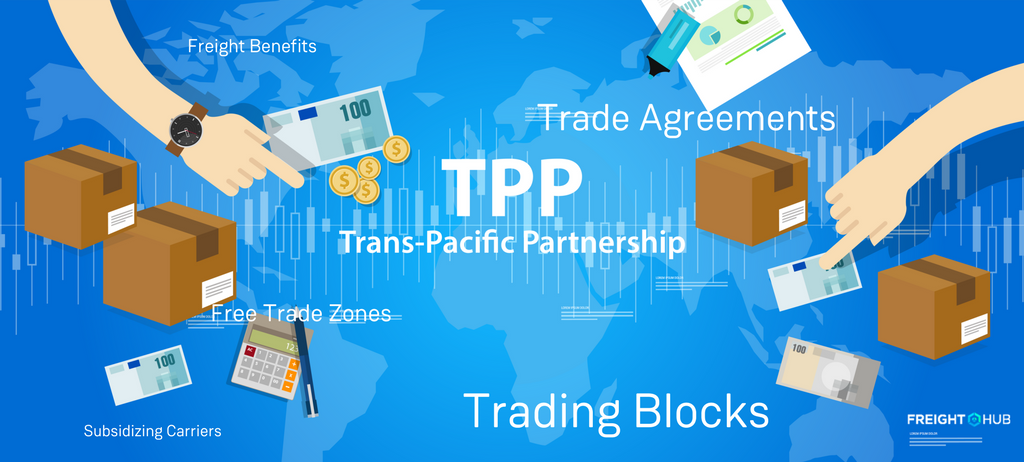-
Is the role of government a help or a hindrance for freight?
-
Trade agreements, Trading Blocs and Free Trade Zones are all negotiated by governments and can benefit shippers.
-
Carriers and forwarders need to be knowledgeable of trade rules and regulations so to advise shippers of options.
The role of government in the private sector has always been debated. Some consider it an intervention while others welcome the government’s role. Regardless, for better or for worse, governments play a major role in the freight market.
Subsidizing Carriers
Sadly, freight carriers do not compete equally with many subsidized by governments. For example, in the ocean freight market, the Taiwanese government owns over 30% of the vessel operator, Yang Ming. The Chinese government played a major role in the merger of Cosco Group and China Shipping Group and late last year, South Korea’s government announced it would provide $5.7 billion in support for the country’s shipping firms in the form of a state-backed vessel financing company.
Airlines are similar. Etihad is owned by the Abu Dhabi government while Emirates is owned by Dubai and Aeroflot by the Russian government.
And let’s not forget post offices. Many post offices still fall under the domain of many governments. As mail volumes decline, post offices are increasingly competing for parcels as e-commerce continues to take bigger chunks from retailers and other players.
The freight market is a tough market to compete in thanks to unleveled playing fields. But, at the same time, governments are instrumental in providing opportunities for freight carriers such as the opening of new tradelanes and geographies, improved infrastructure and reduced import/export costs.
Trade Agreements
In general, trade agreements, negotiated by governments, reduce trade barriers and create a more stable and transparent trading and investment environment. In other words, trade agreements make it easier and cheaper for companies to export their products and services to trading partner markets.
According to the US Department of Commerce, 47% of U.S. goods exports went to free trade agreement (FTA) partner countries. U.S. merchandise exports to the 20 FTA partners with agreements in force totaled $710 billion in 2015.
Perhaps one of the most contentious trade agreements has been the Trans-Pacific Partnership (TPP). In 2016, twelve countries that border the Pacific Ocean signed up to the TPP, representing roughly 40% of the world’s economic output. The agreement was designed to cut tariffs and fostering trade to boost growth. But all 12 nations needed to ratify it, before it could come into effect.
US opponents viewed it as a secretive deal that favored big business and other countries at the expense of American jobs and national sovereignty. To fulfill his campaign promise, Trump signed an executive order withdrawing the US from the agreement leaving its future existence in question.
Trading Blocs
European Union and the Asean Economic Community are examples of trading blocs involving a union of countries. Typically these unions are formed to protect themselves from imports from non-members and to encourage easier access to each other’s markets. However a big disadvantage of these formations allows for inefficient producers within the bloc to be protected from more efficient ones outside the bloc thus driving up unnecessary costs.
Free Trade Zones
A free trade zone is an area within which goods may be landed, handled, manufactured or reconfigured, and re-exported without the intervention of the customs authorities. Free trade zones can be located anywhere but are typically found near ports, airports or near other transportation points.
These locations are beneficial to carriers allowing for lower import/export costs and offering of value-added services such as light manufacturing closer to customer locations.
Freight Benefits
Freight companies have not only adapted to changes in trade agreements, trading blocs and free trade zones but have also developed unique solutions to address these changes. For shippers needing to move freight, utilizing a carrier/forwarder with knowledge of trade rules and regulations is necessary to avoid extra costs or taxes.
What do you think? Do you believe governments are a help or hindrance for freight? Let us know, leave your comment
Find Out More
Find out more about the global freight market by signing up for our newsletter. In addition, follow us on Twitter and LinkedIn for real-time news and analysis.
Read this next: Nearshoring and Offshoring Under Attack
Logistics and Transportation Providers Already Benefit from China’s Silk Road









